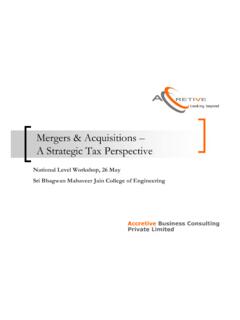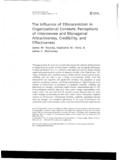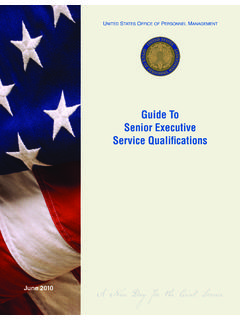Transcription of Cross Border Taxation of Royalty and Fee for …
1 Cross Border Taxation of Royalty and Fee for technical Services-An India UpdateC A Vishnu BagriStudy Circle MeetingBangalore Branch of SIRC, ICAI 26 November 2009 Preamble Fee for technical services (FTS) and Royalty arises because of commercialization of intellectual properties Non-residents are liable to tax in India on these income streams based on the source rule Determination of tax incidence involves:>Domestic law vis- -vis applicable tax treaty>Choice of more beneficial provision Withholding tax implications -a crucial obligationIn today s session we will be focusing on the India tax incidence for Royalty /fee for technical services earned by non-residentsStructure of Rule of tax obligation on payments to non-residents>Recent Karnataka High Court Decision Case Discussions> Taxation of Software Payments> Taxation of Database Subscription Fee> Taxation of Server Hosting Charges> Taxation of Telecommunication Charges>Characterisation to be based on Main RemarksEmerging IssuesIndia s position on OECD views (July 2008 update)Proposal under the Direct Tax Code (DTC)Source Rule : When Does India have a right to tax the FTS/ Royalty of the Non-resident?
2 Source Rule (domestic law) FTS/ Royalty accrue or arise in India where it is:>Payable by the Government>Payable by resident unless it is payable in respect of any right, property or information used or services utilized:>for the purpose of or in the business or profession carried on by such resident outside India or >for the purpose of making or earning any income from any source outside India>Payable by non-resident only if it is payable in respect of any right, property or information used or services utilized:>for the purpose of or in the business or profession carried on by such non-resident in India or>for the purposes of making or earning any income from any source in IndiaDTC proposal sourcing principle for FTS/ Royalty Taxation is similar but further emphasis on the fact that deeming provisions would apply though services are rendered outside India or the income has otherwise not accrued in Rule (treaty) Treaty would provide India the right to tax the passive income streams provided the income arises in India>What arises in India?
3 The interplay of domestic law >Typically treaty provides that the income is deemed to arise in India >if payer is resident in India; or >the income has a nexus to a Permanent Establishment / Fixed basein India [governed by Article 7/14]Additional Comments Supreme Court has held that for income to be sourced in India the law envisages the fulfilment of two conditions for the service to betaxed in India, viz.: (a) such services are rendered in India, and (b) such services are utilised in India, and these two conditions have to be satisfied simultaneously. [Ishikawajima-Harima Heavy Industries Ltd. v. DIT]>Contrary views prevail subsequent to introduction of Explanationto Section 9 which provides that the income shall be deemed to accrue in India whether or not the non-resident has a residence or place of business or business connection in India CBDT on OECD Model: India reserves its right to tax royalties & FTS at source it reserves the right to define with reference to domestic law and define source of such paymentWhat qualifies as Fee for technical Services?
4 Scope of FTS (domestic law) Broad and exhaustive definition >rendering of any managerial, technical or consultancy services (including the provision of services of technical or other personnel) >but does not include consideration for any construction, assembly, mining or like project undertaken by the recipient or consideration which would be income of the recipient chargeable under the head Salaries (Explanation 2 to Section 9 (1) (vii)) DTC proposes to include -development andtransfer of a design, drawing, plan or software, or anyother service of similar nature;Scope of FTS (treaty) OECD model does not contain a FTS article India s treaty position on FTS can be categorized as follows: >Absence of Article on FTS.>Concurrent Coverage ( FTS and Independent Personal Services)>Fee for Included Services (FIS)>Fee for technical Services (FTS).
5 >MFN clause in the treaty.* Acknowledge Mr Pinakin Desai s presentation Scope of FTS (treaty) Alternative 1 : Absence of Article on FTS >No special treatment for technical services>Tax incidence to be based on characterization as Business Profits/Other Income/IPS (if specified such as Brazil)> Mauritius, Philippines Alternative 2: Concurrent Coverage ( FTS and Independent Personal Services)>Treaty has Article on Independent Personal Services; Treaty also has Article on FTS.>Usually, IPS ropes in fixed base and professional services: Individuals, Firms.>Example: Bulgaria, China>USA, UK treaties avoid the of FTS (treaty) Alternative 3: Fee for Included Services (deals with technical services)>Definition of FIS (Refer for example Indo -US Treaty) For purposes of this article, fees for included services means payments of any kind to any person in consideration for the rendering of anytechnical or consultancy services (including through the provision of services of technical or other personnel) if such services.
6 Make available technical knowledge, experience, skill, know-how, or processes, or consist of the development and transfer of a plan or technical design. >Under FIS Clause :>Service should be technical or consultancy; (plus)>Service should satisfy further condition as per the definition.>Service even if technical may not be FIS : such technical service fee is business income of recipient. Taxable in country of residence ofnon-resident enterprise.>Typically associated with service PEScope of FTS (treaty) Alternative 4: Fee for technical services>Treaty definition largely at par with Domestic Law>Treaty Definition : (Refer for example India-Japan Treaty).> The term Fees for technical services as used in this Article means payment of any amount to any person ..in consideration for the services of a managerial, technical or consultancy nature including the provisions of services of technical or other personnel.
7 Alternative 5: Most Favoured Nation (MFN) protocol MFN may restrict FTS to FIS without consequential service PE trigger though cause treaty may have FIS with service PE Examples of MFN clause: Treaties entered into by India with countries Belgium, France, Hungary, Israel, Spain, Sweden, and SwitzerlandAdditional Comments Distinguish technical service from technology driven service Treatment on export commission payable to non-resident agent >post withdrawal of Circular 23/1969 and 786/2000 >Commercial or office or administrative services to be distinguished >What is the withholding obligation? -In light of the Karnataka HC decision in the context of Section 195;What qualifies as Royalty Domestic law has a comprehensive and exhaustive definition. It would encompass:>Transfer of rights in respect of the intellectual properties>Transfer of informationon the working of the intellectual properties>Useof the intellectual properties Physical use is not necessary.
8 Deriving advantage by employingit would constitute use.>Imparting of know how>Equipment Royalty >Transfer of rights in respect of any copyright, literary, artistic or scientific work>Rendering services in connection to above Intellectual properties>Patents>Inventions>Model>Desi gn>Secret formula or process or trader mark or similar propertyScope of Royalty (domestic law)Proposal under Direct Tax Code The definition of the Royalty under the proposed DTC is widened The word secret is now specifically restricted only to formula by inserting comma after the word formula The use or right to use ship or aircraft is specifically included in equipment Royalty . The use or right to use transmission by satellite, cable, optic fibre or similar technology amounts to Royalty .
9 Accordingly, payments to satellite companies, data transmission charges are now considered as Royalty . Transfer of all or any rights in respect of live coverage of an event is now considered as of Royalty (treaty) -Or for information concerning industrial, commercial or scientific experience India treaty with US, UK India treaty with Belgium, Sweden-Or for the use of, or the right to use, industrial, commercial or scientific equipment, -Any patent, trademark, design or model, plan, secret formula or process, India treaty with US, UK, India treaty with Belgium, Sweden-Or films or tapes used for radio or television broadcasting -Any copyright of literary, artistic or scientific work including cinematograph films, -means payments of any kind received as a consideration for the use of, or the right to use,UN model(Article 12(3))OECD model(Article 12(2))
10 TextWe should specifically review definition under each applicable treaty before decision making Additional Comments (CBDT view on OECD)May constitute royaltyNot Royalty payments to create new design /model Article 7 to applyAct of copying programme for effective operation of programme bythe user (Para 14)May constitute royaltyNot Royalty Article 7 to appPayment for the development of design , model or plan that does not already exist (Para )May constitute royaltynot Royalty payments to increase sales receipts Article 7 to applyPayment for obtaining exclusive territorial distribution rights of a product / service (Para )May constitute royaltyPayment not for use of or the right to use hence not Royalty -Article 7 / 13 to applyTransfer of full ownership of an element of property referred inthe definition royalties (Para )INDIA POSITIONOECD POSITIONA dditional Comments (CBDT view on OECD)May constitute royaltyNo Royalty Article 7 to applyDownloading digital products for obtaining and using required data (Para )May constitute royaltyNo Royalty Article 7/ Article 13 to applyMay constitute royaltyNo Royalty Article 7 to applyMay constitute royaltyNo Royalty Article 7 to applyMay constitute royaltyNot relevant no royaltyTransfer of full ownership rights (Para 15 & Para 16)Distribution intermediary distribution of software copies (Para )







